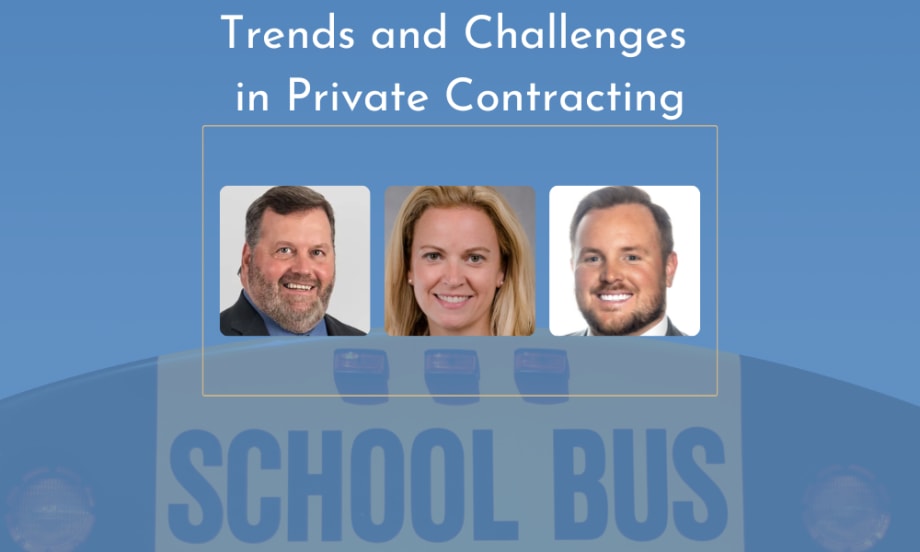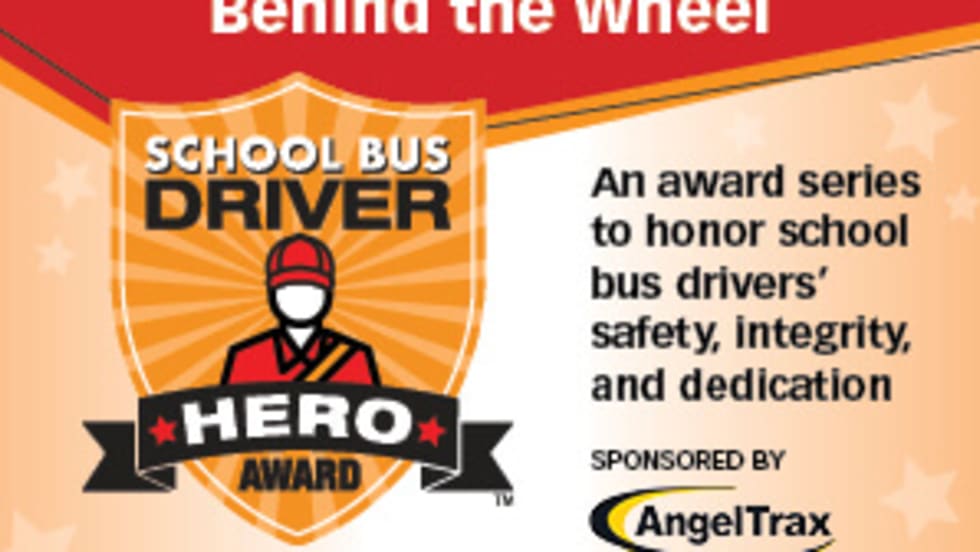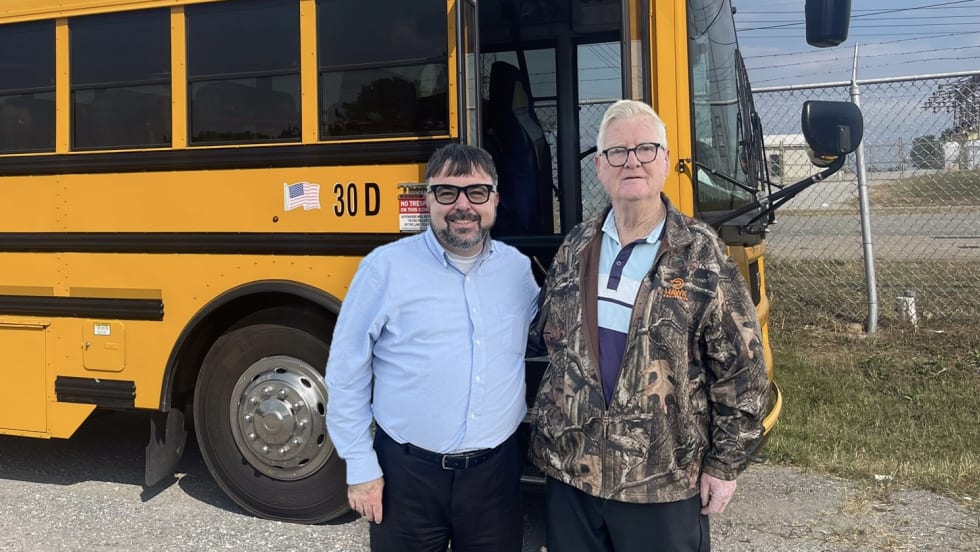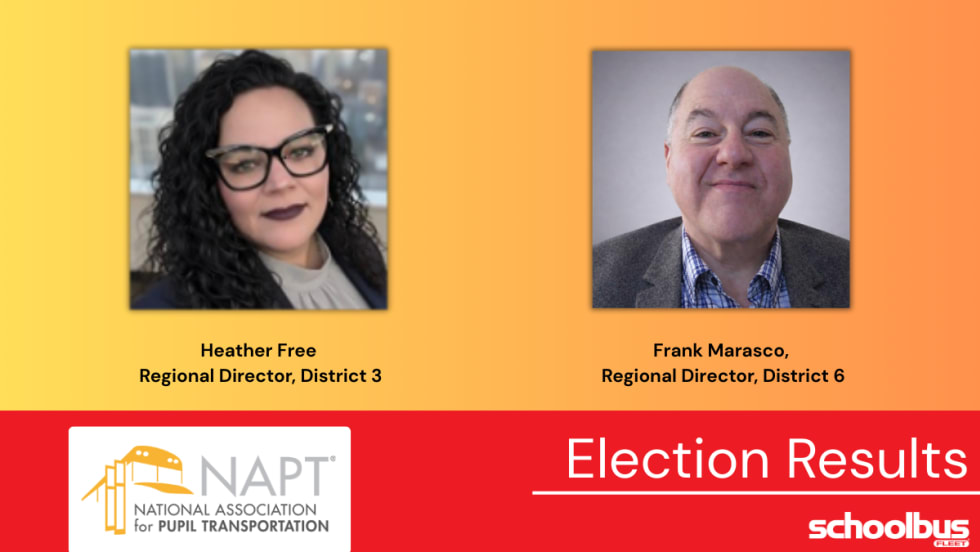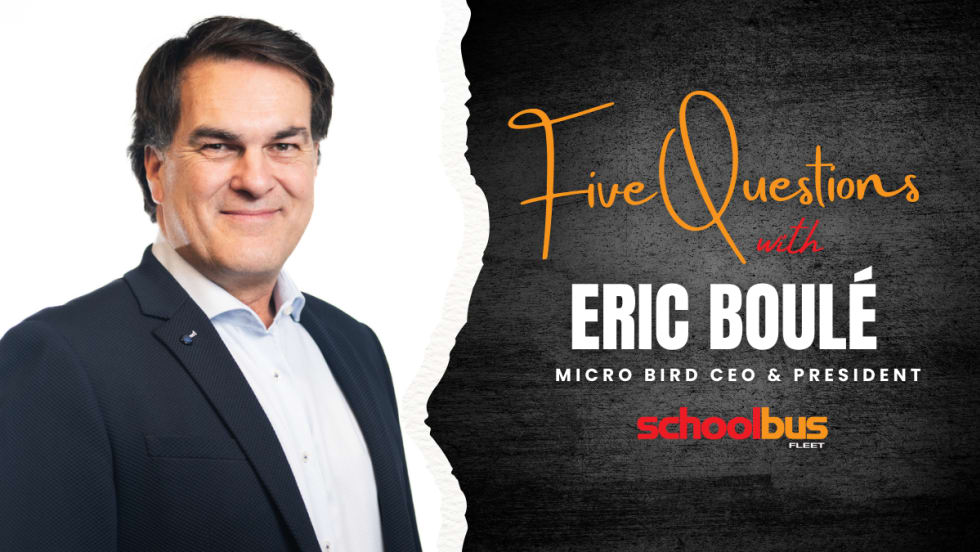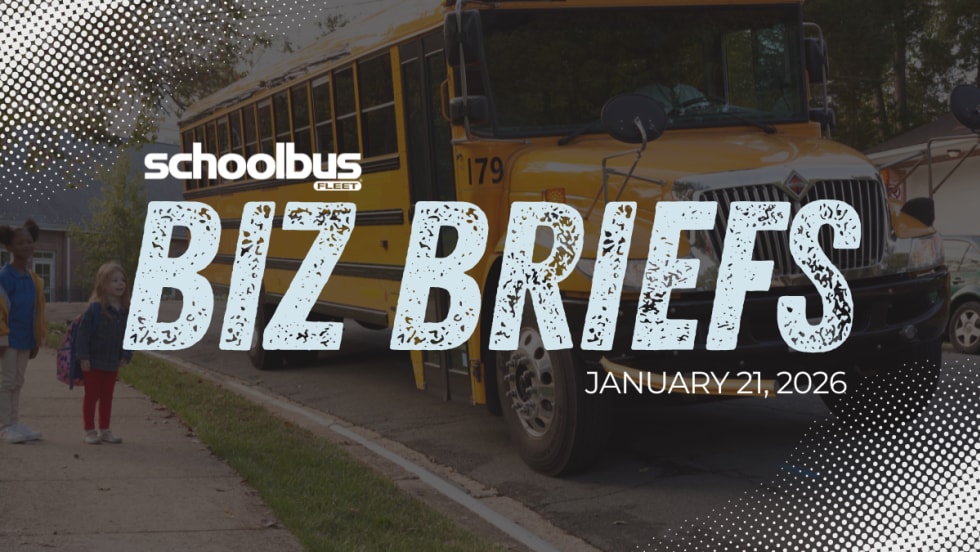Industry experts share challenges they’re facing, as well as opportunities for growth in private contracting.
Private school bus contractors play an important role in pupil transportation, keeping things rolling smoothly for school districts. There’s no doubt the last few years have brought some bumps in the road across the industry, especially for private contractors.
School Bus Fleet Executive Editor Wes Platt was joined by National School Transportation Association (NSTA) President and National Express Senior Vice President for Communications and External Affairs Carina Noble, NSTA Executive Director Curt Macysyn, and Logan Bus Company and Guardian Bus Company Executive Vice President Corey Muirhead in a recent webinar discussing trends and challenges in school bus contracting.
Driver Shortage, School Bus Safety, and Electrification Remain Largest Challenges in Contracting
In a survey after its midwinter meeting, NSTA, which is made up mostly of private contractors, found that many contractors remain plagued by a driver shortage.
It’s what Muirhead describes as the “Amazonification” of the industry, because the pupil transportation industry is fighting to hire the same drivers as Amazon and other major online retailers.
“I would say that attracting new drivers and driver retention go hand in hand. And that’s become a critical challenge in the industry,” Muirhead said.
The 2022-2023 school year will prove to be an important one in terms of data on issues like the driver shortage, Macysyn explained, because this is the first “normal” school year our nation has had in three years.
“Looking at the data, this year is going to be important for us as opposed to potentially looking at skewed data from, say, the past two or three school years,” Macysyn said. “I say that not to dismiss the idea that we don’t have a driver shortage, but instead, for us to fully understand the depth of that shortage and how we need to address it.”
In the area of school bus safety, NSTA reported it is seeing an alarming uptick in incidents involving illegal passing during the loading and unloading process.
The Infrastructure Investment and Jobs Act of 2021 included the Stop for School Buses Act, which directed federal agencies to conduct a comprehensive study of state and local laws on illegal passing, review technological solutions, and produce a public service announcement campaign promoting awareness about the dangers of illegal passing.
NSTA is working with federal agencies on the efforts, but Noble said she is concerned about the rate of incidents involving illegal passing.
Across the industry, contractors are facing a myriad of challenges with electrification – from learning about the changes needed to adopt electric school buses, to navigating funding opportunities for electric school buses and infrastructure and managing the infrastructure complexities.
Partnering with Leaders on the Federal Level to Inspire Change
Macysyn, Noble, and Muirhead agree that it’s important to be in communication with decision-makers on Capitol Hill. It can lead to meaningful and impactful changes.
Late last year, a group from NSTA visited a bipartisan group of lawmakers on Capitol Hill to discuss potential changes to the Infrastructure Investment and Jobs Act. The team asked for equity in grant access for private school bus operators, as well as flexibility for the five-year service requirement due to state-by-state differences in contract laws.
The changes the group suggested were then reflected in the fiscal year 2023 Omnibus Appropriations Act.
“It was a huge victory for us to get those changes, because it takes a complex program and makes it slightly less complex,” Macysyn said.
Checking off the box on addressing this issue now allows NSTA to address other roadblocks contractors face with legislation, like some of the fine print in the Environmental Protection Agency’s (EPA’s) Clean School Bus Program regulations, as well as funding allotments for things like infrastructure.
Noble said she was able to share some of the successes and challenges NSTA members faced during round one of the program so the EPA could make adjustments for the second round.
NSTA brought more of its members to Capitol Hill in April 2023 for its Bus-In to advocate for the tax exemption of Coronavirus Economic Relief for Transportation Services (CERTS) funds. The organization touted what it called a victory in its efforts, with two lawmakers reintroducing the CERTS Tax Exemption Act.
Looking Ahead: Opportunities for Contractors to Have an Impact
Noble believes that continuing to provide a way for contractors to have a voice will allow for continued growth and improvements.
“I think one of the greatest opportunities we have to have an impact is just telling our story. Anytime a contractor tells their story to a legislator or regulator or local leader, it raises the profile of our whole industry. And that’s what we need to do more of,” Noble said.
Muirhead believes that more widely adopting the use of rider tracking apps — and making it affordable and feasible for contractors — across the industry is one way to bring peace of mind to parents. He shared an anecdotal story a parent shared with him once:
“She doesn’t feel that it’s fair that she can order a pizza and see the minute the pepperoni is put on the pizza, and the minute it’s left the store, and the minute it arrives at her house. But the second her child goes on the bus, she can’t know that the kid gets to school on time. That’s stuck with me, and I completely agree with her,” Muirhead said.
Macysyn said he believes the industry has a chance to set an example through fleet electrification.
“I’m confident that student transportation will adapt and is probably the best opportunity to demonstrate overall the effectiveness of electric vehicles in a fleet situation,” Macysyn said.
To hear more about trends and challenges in private contracting, listen to the entire webinar.




